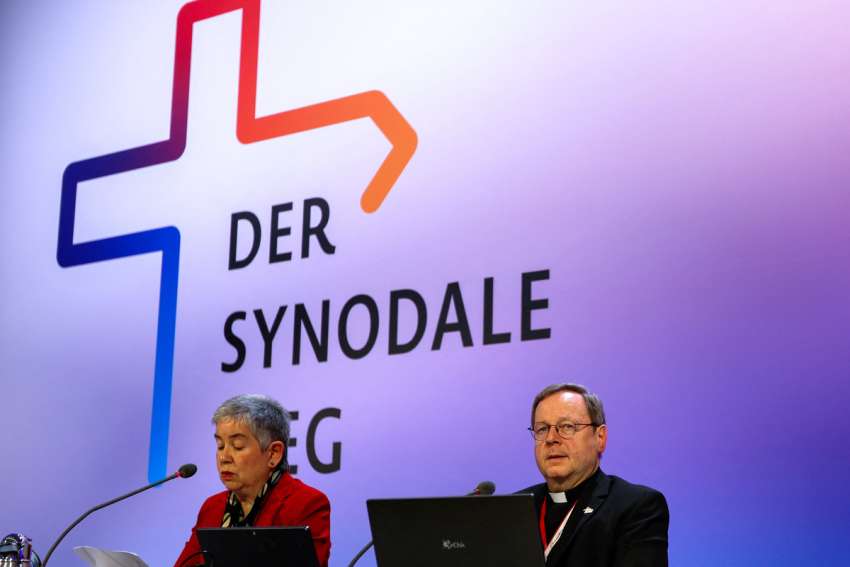It is this: You are the Pope. As summus pontifex ecclesiae universalis, he must judge the disobedience of a majority of Teutonic clerics who recently voted to give Catholic blessings to same-sex marriages. Reasoned voices caution Francis is being forced to answer a challenge to the foundational truth of our Holy Mother Church.
Following conclusion on March 10 of Germany’s three-year national consultation about the Church’s future, American Catholic intellectual George Weigel raised such a warning. Weigel, author of the definitive biography of St. John Paul II, contended the German bishops are forcing Francis into a judgment that risks worse than schism. They are, he wrote in the Wall Street Journal, pushing the Pope to confront flagrant public apostasy.
Schism, Weigel said, rejects the Church’s hierarchical order, e.g., refusal by Orthodox Eastern Churches to accept papal primacy. Apostasy, by contrast, denies the whole truth of Roman Catholic teaching proclaimed in the name of Christ.
“To be an apostate is to deny the truth of what the New Testament author of the Letter of Jude called ‘the faith which was once for all delivered to the saints,’ ” he wrote.
So, the question confronting Francis — and the “world episcopate in ecumenical council” to use Weigel’s phrase — is simple, if not easy. It is not a question of whether to “like” or “agree with” or “desire the Church accept” blessing of same-sex marriages. Those are secular and political ambitions. They remain so regardless of how eloquently the vocabulary of charity and justice is used to express them. The only true question, for Francis as for all Catholics, is whether to stand with, or abandon, the Church’s eternal truth.
The truth, as the Vatican warned the German bishops in 2021 when they headed down the same-sex blessing path, is the Church does not have the ability to “like,” “agree with,” or “wish upon a star about,” much less change, its foundational teaching.
As the National Catholic Register framed it March 17, “the Vatican’s doctrine office (has) explained that blessings are sacramentals, and ‘consequently, in order to conform with the nature of sacramentals, when a blessing is invoked on particular human relationships, in addition to the right intention of those who participate, it is necessary that what is blessed be objectively and positively ordered to receive and express grace, according to the designs of God inscribed in creation, and fully revealed by Christ the Lord.’”
To insist Francis judge contrary to “inscribed and revealed creation” demands he contradict the nature of the Church and, indeed, our essential humanness at its origin. It is, nonetheless, to ask that he, in fact, judge. It therefore answers his own question “Who am I to judge?” with unwavering affirmation: “You, Holy Father, are the Pope.”


